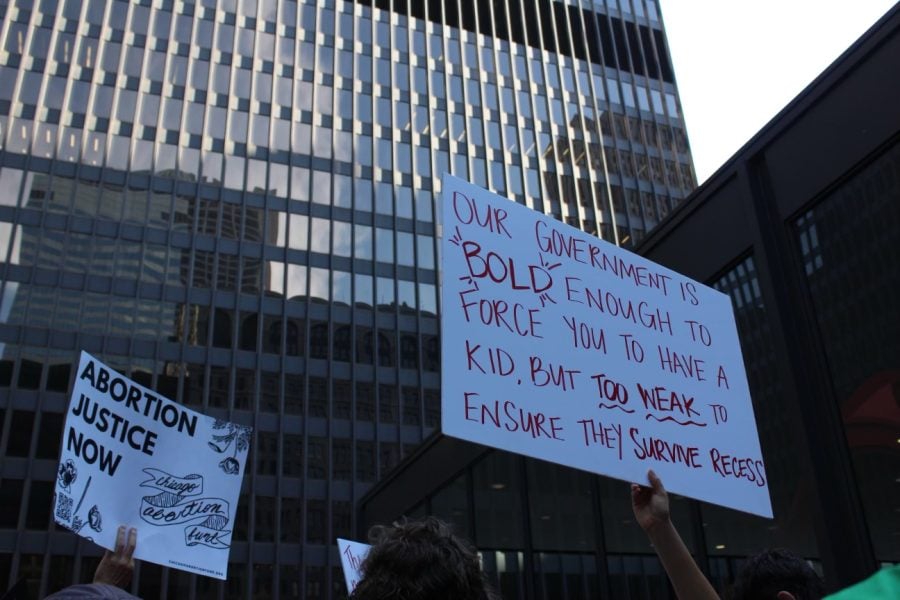Northwestern hosts panel of experts after Friday SCOTUS decision
Selena Kuznikov/The Daily Northwestern
Protestors took to the streets of downtown Chicago after news of Friday’s decision.
June 26, 2022
After Friday’s Supreme Court decision to overturn Roe v. Wade, several Northwestern professors across various disciplines gathered virtually to discuss implications of the decision on both a local and national level. The webinar featured submitted questions from media outlets in attendance.
The panelists featured several Feinberg School of Medicine faculty members, including Dr. Cassing Hammond, Prof. Katie Watson and Dr. Melissa Simon. Other panelists included Pritzker Prof. Ronald J. Allen, sociology Prof. Laura B. Nielsen, and Communication Prof. T.J. Billard.
In the hourlong conference, the panelists answered a variety of questions regarding the Roe v. Wade decision, ranging from legal complications for traveling to “haven states” where abortion is legal to the medical complexities that require abortion as treatment.
Watson noted although some people say this decision will take the U.S. back to a “day before Roe,” the pharmaceutical system has drastically changed since then. While there will be a reduction in abortion pills in states where clinicians are not allowed to prescribe them, Watson said “self-managed” abortions, where people can obtain abortion pills from internet pharmacies or European organizations, will likely become more accessible.
“The Supreme Court justices are nine attorneys. They’re not physicians,” Hammond said. “ What they did today was considered a form of medical malpractice.”
Hammond and Simon discussed instances in which an abortion is required to save the childbearer’s life, such as placental abruption or ectopic pregnancies. By banning abortion, Simon said medical providers who took the Hippocratic oath to “provide the best care possible” are placed in an “awful” situation.
Billard touched on how Friday’s decision may impact future decisions for other forms of care, specifically that of transgender and nonbinary people.
“Should any case that challenges a restriction to trans health care go up to the Supreme Court, there is a logic of argument … that says that the state has the right to go against the better advice of medical practice, to go in against the bodily autonomy of individuals and to go against the moral sentiments of the nation to decide that the states can prevent access,” Billard said.
Simon ended the panel by encouraging young adults and people who are capable of pregnancy to consider long-term, reversible contraception such as IUDs and the Nexplanon arm implant.
While this panel was open exclusively to media, the University will be hosting a similar virtual panel July 12. Hammond as well as several Pritzker professors will be in attendance.
Email: joannehaner2024@u.northwestern.edu
Twitter: @joanne_n_h
Related Stories:
— Thousands march in downtown Chicago to protest overturning of Roe v. Wade
— The Daily Northwestern’s Guide to Illinois’ 2022 Governor’s Race
— Northwestern students rally in downtown Chicago for abortion access



